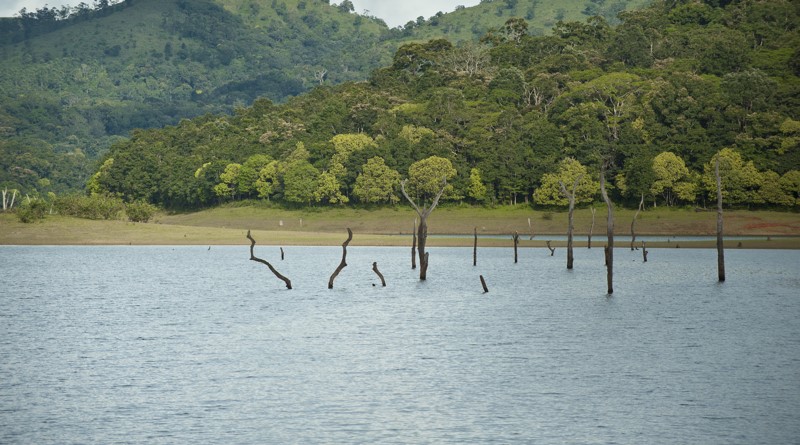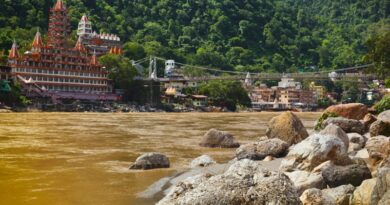NGT directs states, UTs to set up for nodal agency to protect, restore water bodies

The National Green Tribunal (NGT) has directed all states and Union Territories (UTs) to designate a nodal agency for restoration and protection of water bodies, if such an agency hasn’t been set up already even as the National Human Rights Commission (NHRC) has issued notice to the Centre, states, and the UTs over fluorosis cases across the country..
The NGT directions follow a plea that had sought identification, protection and restoration of waterbodies in Gurugram, Haryana. The green tribunal has expanded the scope of the petition and directed all states and UTs to have an agency in place and also directed that a central monitoring committee (CMC) that includes the Secretary, Union Jal Shakti Ministry be set up along with the Central Pollution Control Board (CPCB) and other authorities to monitor compliance at the national level.
The NGT said the designated nodal agency may hold its meeting not later than January 31, 2021, to take stock of the situation and plan further steps, including directions to district authorities for further course of action. The NGT also asked the CMC, formed for monitoring remediation of 351 polluted river stretches, to monitor the steps for restoration of water bodies by all the states periodically, at least thrice in a year.
Noting that adequate steps for protection of water bodies have not been taken and also of a report furnished by the CPCB on rainwater harvesting, the NGT said, “It appears that the CPCB has not appreciated the direction of this Tribunal on the subject. While rainwater harvesting maybe required in all buildings and other places in urban areas, in the present context, the Tribunal has directed setting up of such facilities in sub-water sheds along ponds for utilisation of surplus rainwater for restoration of the ponds which have become dry and for augmenting other ponds.”
Stating that there was a need for “continuous planning and monitoring” at the national, state and district levels, the panel observed that observations of the CPCB and an oversight committee needed to be acted upon.
“As suggested by the CPCB, a single agency needs to be set up in every state and Union Territory within one month. This work may either be assigned to the Wetland Authority of the state or the River Rejuvenation Committee or to any other designated authority such as the Secretary, Irrigation and Public Health or Water Resources,” the NGT said.
“We find that steps taken so far can hardly be held to be adequate…It helps not only aesthetics but also water availability, aquatic life, microclimate, recharge of ground water and maintaining e-flow of the rivers. Under the Public Trust Doctrine, the State has to act as trustee of the water bodies to protect them for the public use and enjoyment for current and future generations,” a bench headed by NGT Chairperson Justice A K Goel said.
Meanwhile, the NHRC has sought detailed reports from the Secretary, Department of Science and Technology and secretaries of the state and UT Water Resources departments with a time-bound plan to eliminate fluoride from contaminated drinking water.
It has also asked Indian Council of Medical Research (ICMR) director general and Council for Scientific and Industrial Research (CSIR) director general to submit a report that details the ways for removal of fluoride from drinking water.
A warning notice was also issued to the district collector and district magistrate, Naupada, Odisha, for the lackadaisical attitude in the submission of a report on a seven-year-old case of drinking water and tackling the issue of fluorosis. The NHRC passed the order recently mentioning the issue as gross, grave and gigantic, raised by Supreme Court advocate and human rights activist Radhakanta Tripathy, according to a ANI news report.
Tripathy had raised the issue of fluorosis, a water-borne disease due to excessive fluoride in drinking water, which is not only a medical problem but also a socio-economic issue. The scourge of fluorosis is prevalent all over India.
Considering the earlier similar cases and the present case filed by Tripathy, the NHRC also sought to know why Odisha is so “lethargic” in the issue of contaminated drinking water, causing the deadly disease of fluorosis in a seven-year-old matter where 14 proceedings have been held with three warning notices. The poverty alleviation and access to clean drinking water and sanitation remain the two pressing problems, India has been facing since independence, the NHRC observed.
Water-related diseases cause irreparable lose and damage to families, Tripathy said.
“Every citizen is entitled to safe, sufficient, affordable and accessible drinking water that is adequate for individual requirements for drinking, consumption, household sanitation, food preparation, and hygiene. The NHRC observed that in 1934, excessive content of fluorides in drinking water was noticed in western countries like the USA. The investigations made since 1934 in India reported the peculiar disease “Skeletal Fluorosis” in parts of Andhra Pradesh, Bihar, Kerala, Maharashtra, Punjab, and Tamil Nadu,” the NHRC said, according to the news report.


